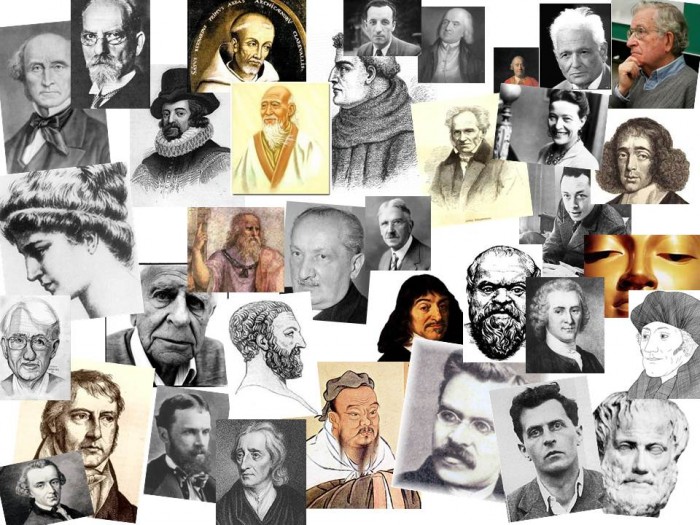

Thought is the means through which reality is reached. Philosophers are deemed to be people of thought, who by their concepts and notions the world has moved to progress. Their theories enrich the history, whether we agree or disagree with their view, they are still so respected. In this article you will meet the top influential philosophers in all time. Plunge yourself in an ocean of intellectual elite!
10 John Locke:
Locke is called as the “Father of Liberalism,” given his progress of the principles of humanism and individual self-determination. It is said that liberalism fits the belief in equal rights under the umbrella of the law, and that though appears with Locke. He stated the quote of “government with the consent of the governed.” Locke is in charge of the nonattendance of nobility in America.
9 Confucius:
He remains the most vital philosopher in Eastern history, who adopted important principles of ethics and politics, when the Greeks were adopting the same matters. It is thought that the Greek are who invented democracy, but Confucius stated in his Analects that the best government is one that rules through the people’s normal morality, not through bribery and coercion.
8 Plato:
Plato’s most lasting theory is that of “The Forms.” He wrote about these forms all the way through many of his works, and emphasized that immaterial ideas hold the highest, most primary sort of reality. All things of the material world and our perception of them can vary, that means that the reality of the material world is feebler than that of the abstract ideas.
7 Aristotle:
Aristotle is the first philosopher to have discussed systems through which to recognize and criticize everything including, logic, politics, literature, science. Aristotle discussed every subject, either abstract or concrete. His ideology of ethics was established on the point of doing good actions, instead of simply being good.
6 Voltaire:
Voltaire was a supporter of some of the most essential freedoms, he thought in the freedom of expression and religion. Voltaire believed that the French bourgeoisie was not very effectual, the nobility was too parasitic, the masses too irrational and uninformed, and that the church was only prized as an offset against the monarchy. He did not trust democracy, and he thought that it propagated the commoners’ stupidity.
5 Simone de Beauvoir:
Simone de Beauvoir was a modern of other well-known French existentialist philosophers. Her works revolve around an assortment of subjects and genres, such as nonfiction writing on feminism, ethics, and fiction. Her works impacted, the idealism of Immanuel Kant, Karl Marx‘s view of materialism based on a historical viewpoint, and French philosophies starting from Descartes to Henri-Louis Bergson.
4 Jean-Jacques Rousseau:
Rousseau published an important work entitled Discourse on Inequality among Men, he discussed two sorts of inequality – natural and political. He asserted on the fact that moral disparity, is an built-in part of any civil society and it causes major differences in power and wealth. Rousseau was an ardent supporter of the view of the natural human and deemed as guidelines the hypothetical state of nature, an idea in political philosophy primarily employed in social contract views that depict life prior governments.
3 Francis Bacon:
Bacon separated religion from philosophy, yet he believed both of them could coexist. He believed that philosophy was based on reason and that faith on exposure, which was illogical. Bacon stated that philosophy used the deductive syllogism to construe nature. He thought the philosopher has to move forward during inductive thinking from facts to sayings to laws.
2 Jean-Paul Sartre:
Sartre would finally read a work that would have a major impact on his logical pursuits. Sartre became a frank critic of France’s colonialism of Algeria. He wrote many works that had political inclines to them. He became a passionate Marxist since Marxism emphasized the struggle of the browbeaten and this fit handily in his anti-colonialism philosophy.
1 Rene Descartes:
He is called “the Father of Modern Philosophy.” He produced analytical geometry, depending on his now eternal Cartesian coordinate system. He supported dualism, which is very on the whole defined as the authority of the mind over the body: strength is resultant by paying no attention to the failing of the human form and depending on the unlimited power of the human mind.
You may support or refuse their ideologies, but they are still minds to respect.